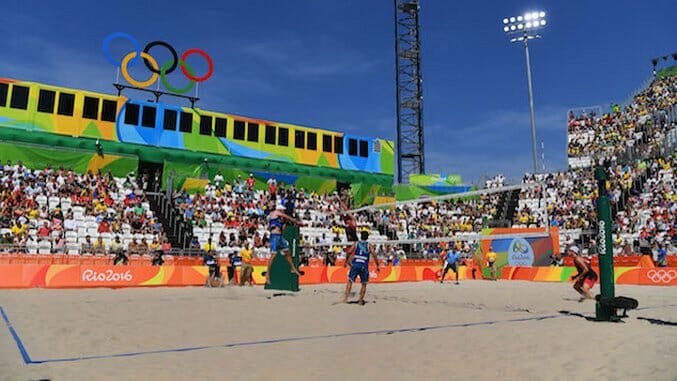Rio 2016 So Far: Beach Volleyball
Photos courtesy Getty Images
While T.V. cameras swooned over the Carnaval-laced opening ceremonies inside Maracana last Friday, the beginning of Brazil’s Olympic campaign unofficially began a day later in the sands of Copacabana Beach. Set in the postcard-perfect epicenter of the country’s most picturesque city, beach volleyball hit the court Saturday to a packed crowd at the temporary 12,000-seat Copacabana Stadium.
Twenty four two-person teams began their march for gold in both the men’s and women’s tournaments, fields that were cut to 16 Thursday night.
Soccer aside, beach volleyball is the lifeblood of Rio de Janeiro’s rich sporting culture, and few Brazilians would argue that it is their most anticipated event in this year’s Rio Games. Since beach volleyball made its Olympic debut in 1996, Brazil has been the sport’s most consistent nation, securing more medals—11 overall (including the inaugural women’s gold)—than any other country.
And the event has added importance for a host nation still looking for its Olympic success story. Before the Games even started, the venue made headlines after human body parts washed up on its shoreline. But Copacabana is one of the most storied stretches of sand in beach volleyball, and after hosting handfuls of International Volleyball Federation (FIVB) tournaments, the Brazilians will have an opportunity to defend home turf against the world’s best on its highest stage.
-

-

-

-

-

-

-

-

-

-

-

-

-

-

-

-

-

-

-

-

-

-

-

-

-

-

-

-

-

-

-

-

-

-

-

-

-

-

-

-








































